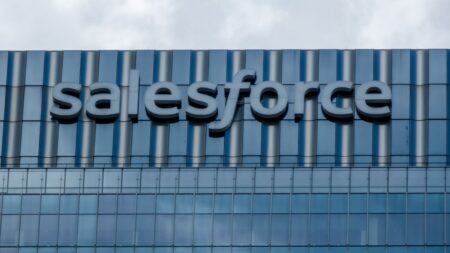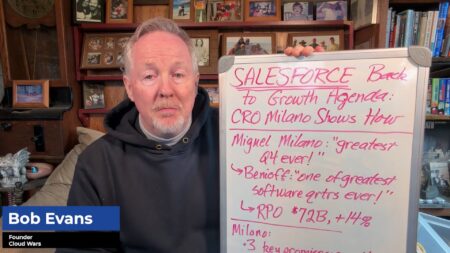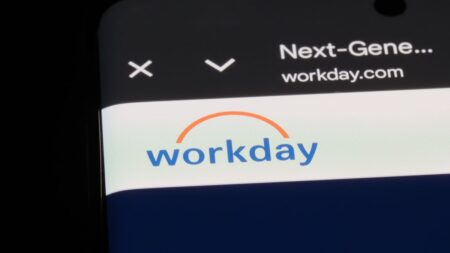Explaining why he feels ServiceNow is in “one of the really gigantic market opportunities of our time,” CEO Bill McDermott regaled an investors conference last week with his thoughts on that growth rocket, competitive dynamics, the power of culture and even a tie-in with the Grateful Dead.
While McDermott’s decade as CEO of SAP was often punctuated by his trademark optimism and deeply personal speaking style, he seems to have become even more animated, more fired up and more candid since taking over as CEO of ServiceNow late last year.
And McDermott’s talk—highly unrestrained compared to that of most CEOs—is anything but empty. As his host at the J.P. Morgan investors conference said in introducing McDermott, ServiceNow’s stock price is up more than 40% since McDermott’s arrival. And that’s happened in the midst of the COVID-19 pandemic.
So for those of you who are interested in a blend of big dreams, customer-centric strategic vision, unrestrained passion and a level of positive thinking that would make Norman Vincent Peale seem almost cynical, here are some big-picture thoughts from Bill McDermott on the following topics:
- the growth market that ServiceNow is pursuing with digital workflows—and how your perspective on the world determines the size and the tenor of your dreams;
- the competitive dynamics in the enterprise-software space, which is particularly intriguing given McDermott’s decade atop SAP;
- the power of culture: both within ServiceNow and in the global economy at large; and
- what the Grateful Dead and ServiceNow might have in common.
1. The growth market ServiceNow is pursuing
One of McDermott’s first comments at the conference was this: “As I think about workflow, I think about a big, big TAM. This is one of the really gigantic market opportunities of our time.” Among his other gems:
Giving businesses the power to create “their own innovation cycles.” “And then with App Engine, because this is a low-code/no-code platform, we can have customers and partners build their own innovation cycles in every industry for every persona. So literally the limitless nature of our growth opportunity is simply stunning. So this is the workflow work horse of the 21st century enterprise.”
Work From Anywhere meets the Digital Economy.
Another massive opportunity is customer service management. Take for example companies that used to have physical events to drive revenue. Let’s think about theme parks as one example. Let’s think about a company that had to take a business that was so dependent on human traffic going through their parks, that if that was shut down, literally you’d be out of business.
Well, companies today are finding new ways to stream and to meet their customers online because they’re not going to meet them in a movie theater, and they’re not going to meet them at a theme park. So if you think about servicing that with virtual agents on the internet, so people can have a great experience, sign up for service and then maintain that service at an excellent level of quality with 55, 60 million users, this is a whole new paradigm.
Huge runways in its existing markets. For ServiceNow’s original IT service-management business, “The upsell and the opportunity for our customers to innovate their businesses on that is dramatic. And that has 90 percent left to go in terms of the upsell and the revenue growth on that platform. Secondly on employee experience, this business is in the hundreds of millions now—but it’s growing at nearly triple digits. So we’re seeing a multi-billion opportunity there. Customer-service management is a $25-billion market and we’re seeing a multi-hundred-million business well on its way to billions. And I know that we can do that.”
CEOs are even more eager to pursue or complete digital transformations. “This is what CEOs are saying today: ‘Get me there quick. Give me a fast ROI cycle. I know digital transformation is a big deal.’ Look at the Fortune poll that just took place where they surveyed a bunch of CEOs on ‘Where are you post-COVID-19 on digital transformation?’ And out of 100, guess what? Six percent said probably I’ll slow it down. That means 94 percent said I’m continuing to go. And 63 percent said I’m going to actually accelerate digital transformation.”
2. The competitive dynamics with Oracle, SAP, Salesforce and others
ServiceNow unleashes data from those “systems of record.” “It took half a century to build mass complexity in today’s enterprise with systems-of-record companies, whether it be Oracle or SAP or Salesforce or Workday or Microsoft. These are wonderful companies, and they do very important things—on the transactional side, the data in those systems is very, very important. But what we need to do in the modern enterprise is get the data out of those systems so people can work interdependently in teams across those silos, and it takes a workflow. And if you design a workflow properly, you will by definition create a great experience.”
“We have no quarrel with any of the systems of record.” “And if the customer wants us to cooperate, we’re certainly very open to doing that. In fact, if you look at it from a human capital management perspective, we have no issue working with all of the vendors that have a system of record and really leaning in and helping them do good things for the customer as well. For example, when I met with Health and Human Services, they had like 74 different human capital management systems for like 74,000 people. But our quarrel wasn’t with those systems of record—we just wanted to make the data work for the customer. So we bring the data into one portal that manages all the knowledge, manages all the cases, gives the onboarding experience and the employee experience all the attention and care it deserves.”
We do stuff they can’t do—how can that be competitive? “Think about work from home. Accenture has like 500,000 employees. On a dime, they had to have everyone working from home. How are you going to get them on their phones and their computers and their networking gear? And how are you going to set that up in a highly productive way? That’s not what the system of record provider does—that’s what we do. So was that competitive to the system of record?”
Cloud Wars
Top 10 Rankings — May 18, 2020
| 1. Microsoft — Cloud revenue up 40% to $13.3 billion |
| 2. Amazon — As world surges to cloud, Jassy & team reach $10B in Q1 cloud rev |
| 3. Salesforce — Check out Marc Benioff: Extraordinary Ascendancy of a Global Leader |
| 4. Google — Remains growth leader as Q1 cloud revenue jumps 52% to $2.8 billion |
| 5. SAP — Klein vows to battle Microsoft, Google Cloud for strategic customer control |
| 6. Oracle — Cloud momentum builds as Ellison once again picks Amazon’s pocket |
| 7. IBM — New CEO Krishna lays out strategy to beat Microsoft, Amazon, Google |
| 8. Workday — Bhusri doubles down on commitment to employees as crisis intensifies |
| 9. ServiceNow — How it’s turning digital workflow into strategic enterprise apps |
| 10. Adobe — Digital Experience business up 24% to $859M in Q4 |
Future partnerships with the “megabrands”? “Today, what’s interesting is we have published more than 500 integrations on the Now platform. So all the mega brands that you have referenced today, we actually have an open API philosophy. All of them come out of the box, integrated into ServiceNow. Can we even make it easier? Can we start combining some of these solutions for the customer out of the box? Why not? I would certainly be open to that.”
Customers are leaning in with the growth companies for digital transformation. “One thing I really want to make clear, one of the reasons they’re excited is a lot of these systems of records are very good companies, but they’re not going to be growth companies the way they once were and it’s entirely clear that workflow and redesigning work and rethinking how work is done is a massive task and ServiceNow is in the pole position of digital transformation. And the tailwind behind ServiceNow is well known.”
If ServiceNow is deep into customer service, then it must be a direct competitor with Salesforce, right?
Well, first of all, we don’t need anybody to lose for us to win. That’s a unique paradigm of ServiceNow’s market position. So since you mentioned Salesforce, as an example, they focus primarily on the engagement layer of CRM. So they know who the customer is, they can upsell them. They can cross-sell them. They can marry that with marketing campaigns. And it’s very much designed around the idea of generating revenue.
The white space, however, is in the middle office, order management. How do I manage orders when I have legal and finance and operations involved? How do I deal with engineering and all the IT operations that go into satisfying the customer in middle office operations? That’s not what they do. We do that. If you think about field service, nobody does field service quite like ServiceNow.
Cleaning up half a century’s worth of messes. “And then I really believe one of the big breakthroughs of this COVID-19 crisis has been the Now Platform. Because people are now realizing they need to have a cross-platform integration engine as they’re in the midst of cleaning up the mess in enterprises that took 50 years to make. And they’re realizing that innovating new applications on the fly is mission critical.”
3. The power of culture.
Having the confidence and commitment to seize the moment. “And at the same time we said, why are we going to be slowed down by this? We’re actually more relevant: we have more strategic authority at this moment in time than we’ve ever had before because the world needs us so much more. So we literally made the decision in that meeting to do a few things. One, we’re not going to slow down. We’re not going to give up. We’re actually going to accelerate the pace because that’s what our customers need us to do. Two, we’re going to bring the ecosystem in. We don’t care who gets the credit as long as the customer wins with their customer. Three, we’re going to treat people with great dignity and respect.”
Honoring commitments to vendors, and hiring 1,500 people during the crisis. “If you’re a vendor of ServiceNow, even if you’re a temporary vendor, we’re not going to furlough you. We’re not going to lay you off. You’re going to work from home. Do what you can do. But we’re going to pay you in full everything that you always got from ServiceNow. Because we’re going to need you. And the loyalty effect that we can create in these circumstances will be a force multiplier for this growth engine called ServiceNow… We actually hired 1,500 people in the heart of the COVID-19 crisis: 1,500 people!”
Showing the love. “And that’s the way we roll. We have this passion to win and not to accept excuses. That’s pretty unique. And this culture really behaves well when it comes to challenges. And that’s one of the reasons I love it so much.”
A “new economic force” is putting a premium on great cultures. “I believe that we’re in the midst of a new economic force. And I believe this new economic force is a true culture move towards service orientation. I believe the customers are buying cultures. I believe that they’re buying hungry and humble people that have great intentions and their intentions are really focused on making that customer a winner.”
Talent hunt: hiring winners who dream.
So I’m jealously guarding this culture. I want every single customer to be satisfied and in love with our platform, the technology and the experience. And I want our folks never to feel like they’re in a big company, even though we’re big and we’re going to get a lot bigger. I want to keep that startup headset. And we want to hire people that have heart, people that want to win. And whatever they don’t understand or they don’t know, they have a great desire to learn, a great intellectual curiosity.
At the same time, we look at their track record and their background, have they been winners? Have they always been a winner? Look at what they’ve done in their life, not where they came from, not how much money they have in their pocket, but rather, are they a winner?
A helping hand for customers in hard-hit industries. “Now, some of them have said, ‘Hey, can you help me out with payment terms? Can you give me a cashflow break?’ And we’re leaning in. I think it would be foolish not to be seen as a company with a heart. But in many of those cases, what do we get in return? Longer-term contracts, perhaps even upsell and cross-sell opportunities that are staged commensurate with when they expect the COVID crisis to wear off and growth to start setting back in. So if we can have a longer tail of successful, happy customers that are actually buying more from us, we’re strong enough to deal with the cashflow implications of helping somebody out on payment terms.”
4. The Grateful Dead connection.
“I tell the team that the Grateful Dead once said, ‘We’re the only ones that do what we do, the way we do it.’ And that is really the truth with ServiceNow.”
RECOMMENDED READING
How Bill McDermott’s Magic Touch Has Made ServiceNow a Cloud Superstar
Larry Ellison Picks Amazon’s Pocket—Again—as Cloud Momentum Builds
SAP Will Battle Microsoft & Google for Customer Control, Says CEO Christian Klein
ServiceNow’s Big Secret: Bill McDermott Redefining Software Business
Salesforce-SAP Showdown: Will Bill McDermott and ServiceNow Be CRM King-Makers?
Life After SAP: Bill McDermott’s 10-Point Plan to Triple ServiceNow’s Revenue
Bill McDermott’s ServiceNow Moonshot: Triple Revenue, Become “Most Admired”
As SAP, Oracle and ServiceNow Lose Leaders, Who Wins CEO Shuffle?
Can SAP Icon Bill McDermott Turn ServiceNow into $10-Billion Cloud Powerhouse?
Subscribe to the Cloud Wars Newsletter for in-depth analysis of the major cloud vendors from the perspective of business customers. It’s free, it’s exclusive and it’s great!








